What are the laws around carrying catapults?
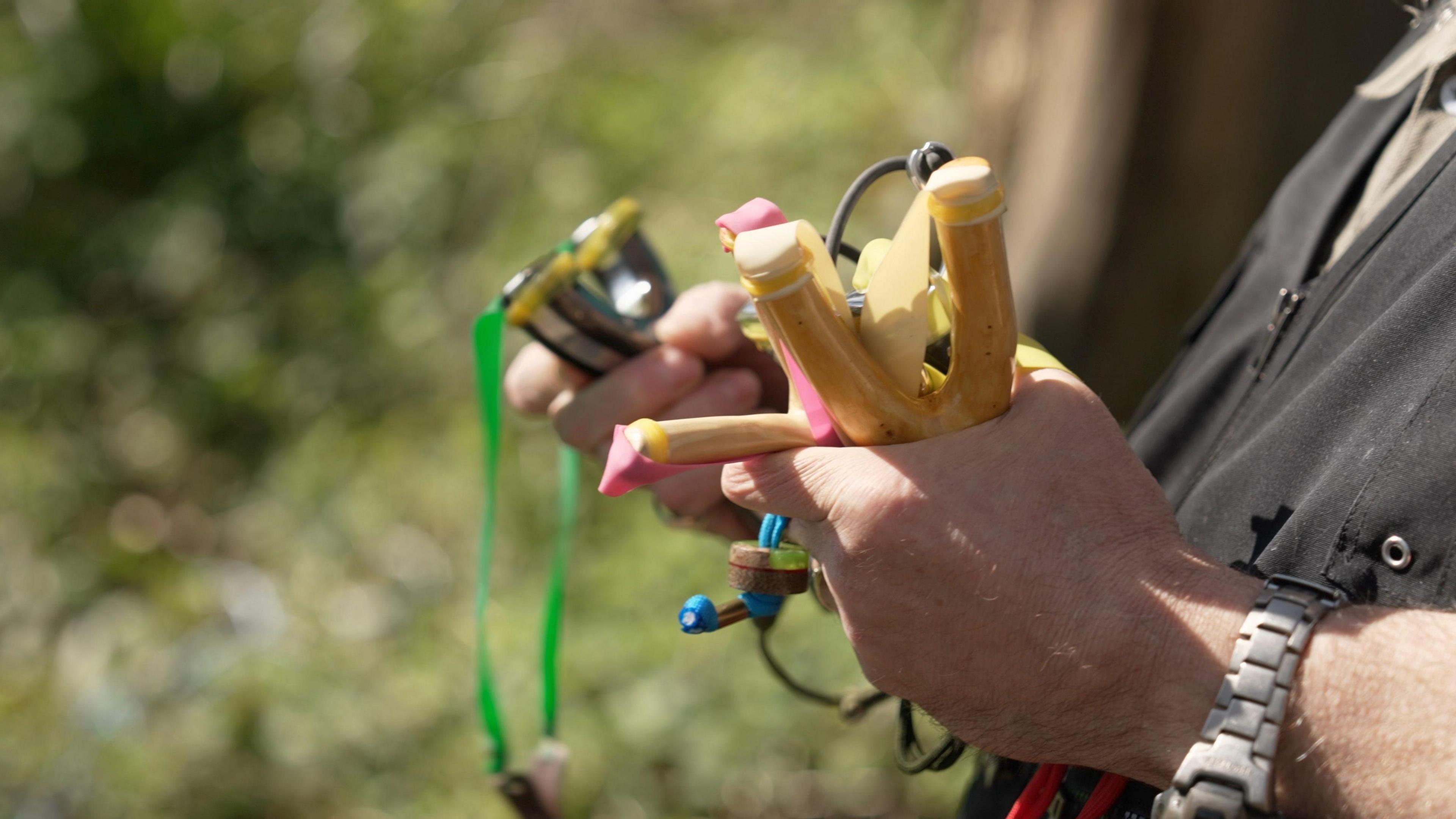
Catapults have legal uses, but they are also being used to cause harm, campaigners argue
- Published
Catapults have been used to cause serious harm to wildlife, property, and people, campaigners say, but is it legal to carry one?
In the UK catapults are not illegal to own or carry in public, but if they are being used to harm people, animals, property, or for anti-social behaviour, their use could be illegal under existing laws.
The difficulty comes in proving whether or not someone carrying a catapult intends to use it for harm.
The government says it keeps all relevant legislation under review.
If someone is carrying a catapult with the intention of causing harm, then it can be considered an offensive weapon.
Where a catapult is used as a weapon, and a person is injured, there are a number of offences which may apply such as causing grievous bodily harm (GBH), which can carry a significant sentence.
The maximum penalty for having an offensive weapon in a public place is four years imprisonment.
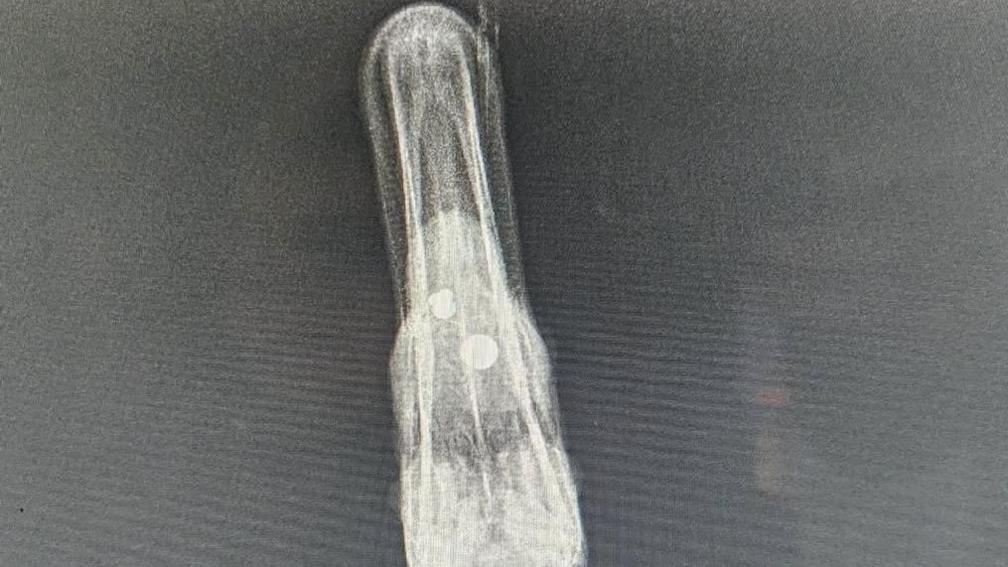
X-ray shows ball bearings lodged inside a swan's head.
Animals are protected under laws including the Wildlife and Countryside Act and the Animal Welfare Act 2006, which makes it an offence to inflict unnecessary suffering on wildlife.
Property is protected by laws around criminal damage - and can lead to up to 10 years imprisonment.
Catapult Crime: Killing for Fun
From child's toy to deadly weapon – we meet the teams cracking down on catapult crime.
A key issue is the ability to prove whether or not someone carrying a catapult intends to use it for harm, campaigners say.
Anna Sabine, Lib Dem MP for Frome and East Somerset, raised this concern in Parliament, saying for catapults it is "particularly difficult" to prove.
The law says it is a defence for someone to prove they are carrying a weapon with good reason or lawful authority, although the legislation does not provide examples of what this means in practice.
What do campaigners want changed?
Campaigners want to see tougher legislation around catapults.
Earlier this year a petition with over 20,000 signatures called for the government to make it illegal to sell or carry them in public.
Trevor Weeks, who runs the East Sussex Wildlife Rescue and Ambulance Service, and has dealt with wildlife which has been injured during catapult attacks, says: "We strongly believe that no one needs to carry a catapult, especially with potentially lethal ammunition, in a public place or on private land without the landowner's permission."
Jim Dickson, Labour MP for Dartford, has also called for more police powers after attacks were shared on social media.
He said: "I am pressing the government for action, including new powers for the police to stop anyone under 18 carrying a catapult without good reason and to confiscate it."
Prove 'legitimate purpose'
A letter signed by 10 MPs , externalfrom the South East was sent to the Home Office last year, calling for catapults to be automatically classified as offensive weapons.
Ellie Vesey-Thompson, the deputy Surrey police and crime commissioner, has also written to the Home Office asking for additional powers to seize catapults.
She has asked the Home Office to consider a change in legislation to put the onus on the person carrying the catapult to show they have a good reason for carrying it - similar to the approach taken with knives.
"Anglers with a legitimate reason to be carrying a catapult would be able to evidence this with the presence of bait and/or other fishing equipment," she said.
"This would enable officers to more easily seize catapults from those unable to prove a legitimate purpose," she added.
Stuart Nolan from the Law Society said: "If the onus is on the carrier of an item to establish legitimate intent, then the police need only to have reasonable suspicion of illegal intent to effect an arrest.
"It's difficult to prove intent in all but the rarest of circumstances."
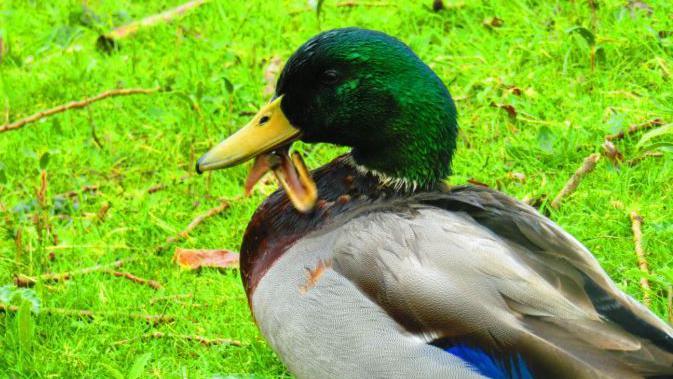
This mallard was found with a broken beak after being shot at
What changes might be coming in already?
The Crime and Policing Bill is currently going through Parliament.
The bill would introduce a new offence of possessing a knife or offensive weapon with intent, increase the maximum penalty for manufacturing, selling, hiring, or lending prohibited weapons, and give the police greater powers to seize knives from properties.
It will also introduce a two-step verification process for the sale of knives and crossbows purchased online.
These laws could potentially be relevant to catapults, but only if changes are made for them to be automatically classified as offensive weapons.
A government spokesperson said: "Catapults should not be used for illegal purposes, whether against people, wildlife or property.
"We continue to keep all relevant legislation under review in the interest of public safety."
Follow BBC Sussex on Facebook, external, on X, external, and on Instagram, external. Send your story ideas to southeasttoday@bbc.co.uk, external or WhatsApp us on 08081 002250.
Get in touch
Have you been affected by catapult crime? Share your experiences.
Related topics
- Published8 October
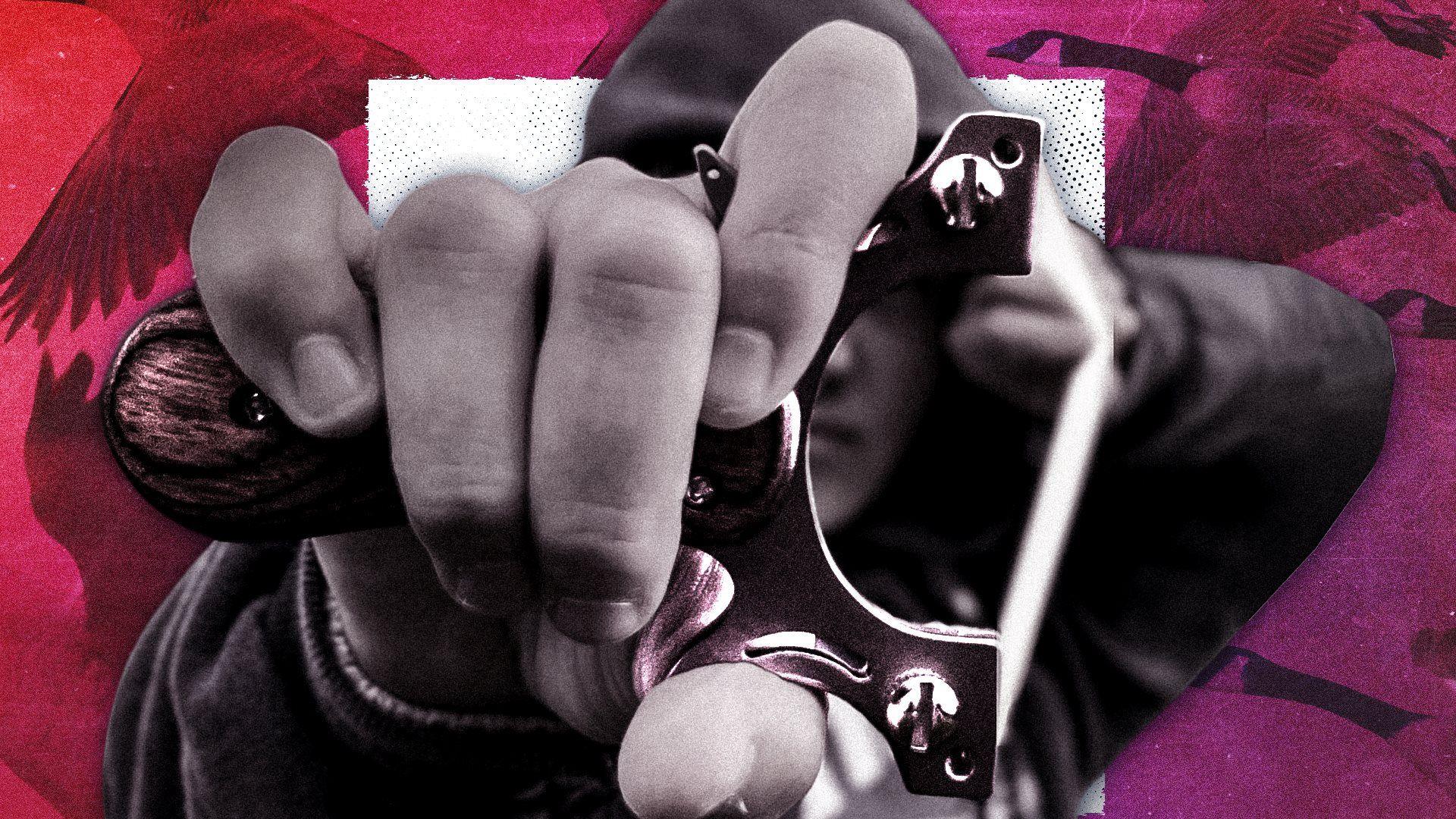
- Published8 October

- Published5 September
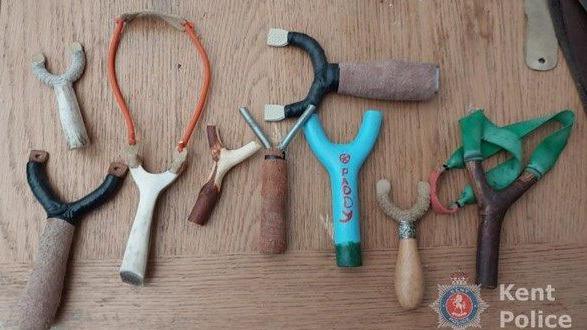
- Published1 September
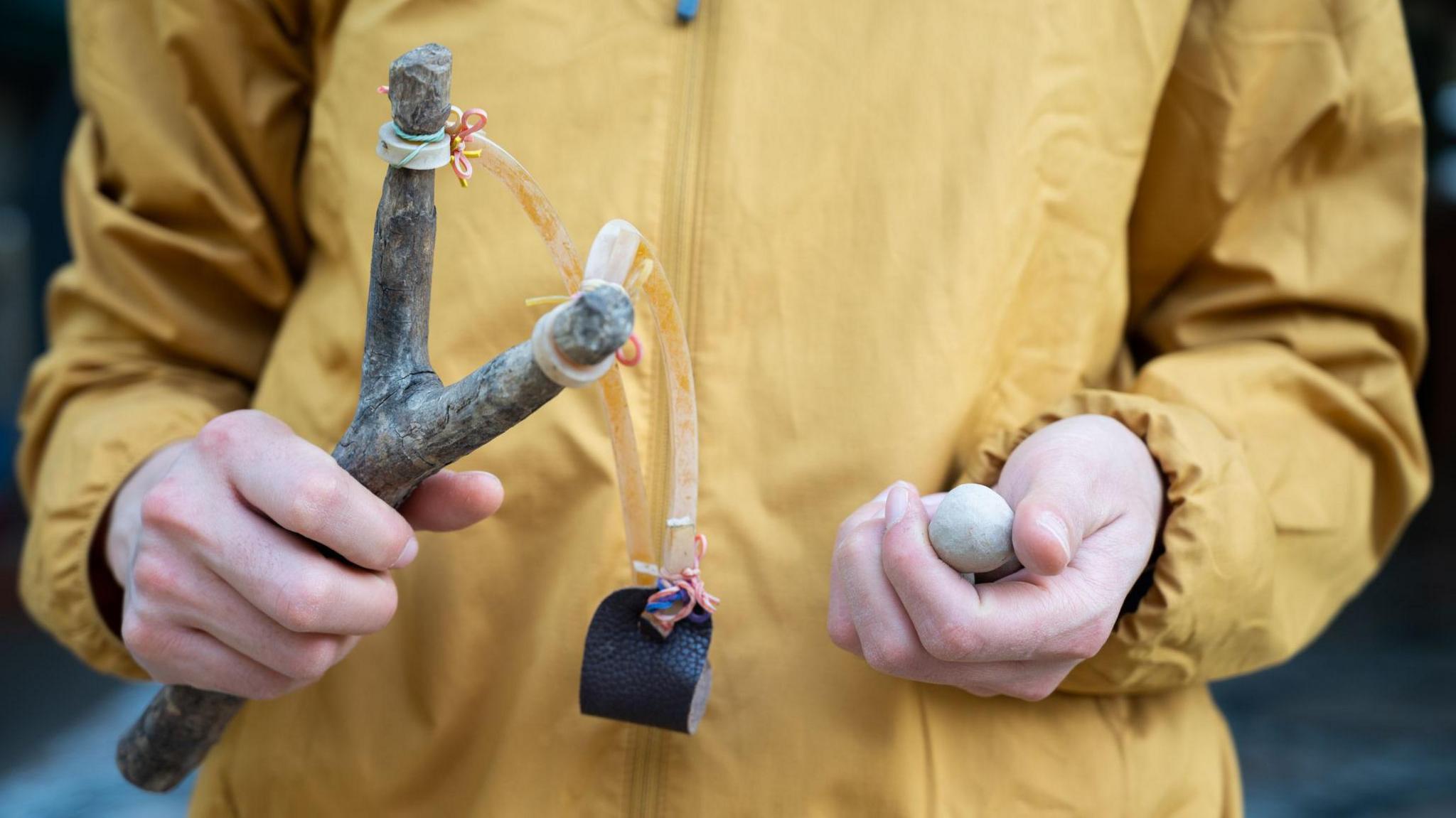
- Published15 July
